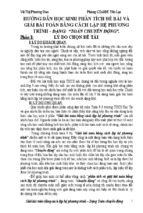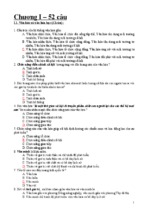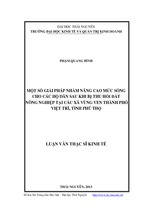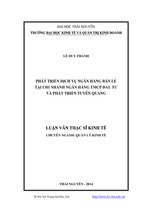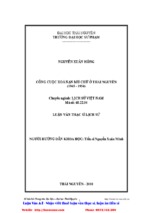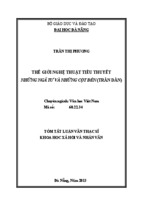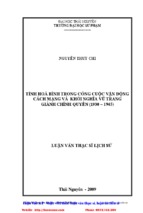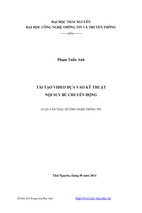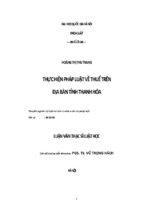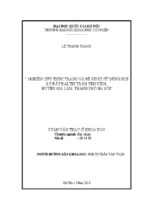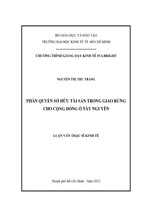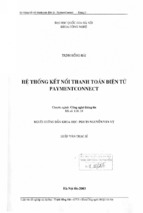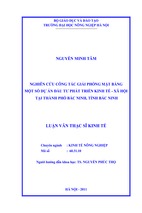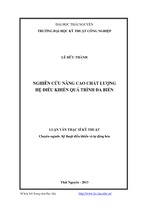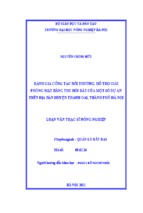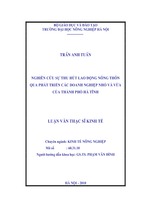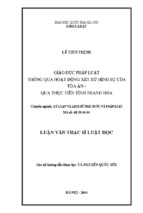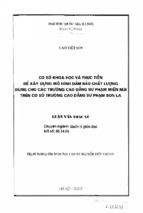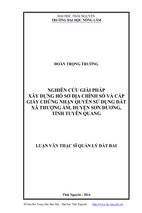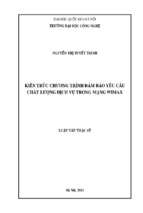Unfolding the Realities of Family Care: The Experience of
family members caring for a child with disability
By: Woynishet Kerebih
College of Social Science
School of Social Work
Addis Ababa University
June 2017
Unfolding the Realities of Family Care: The Experience of
family members caring for a child with disability
By: Woynishet Kerebih
A Thesis Submitted to the Graduate School of Addis Ababa University in
Partial Fulfillment of the Requirements for the Degree of Master of Arts in
Social Work
Advisor: Debebe Ero (PhD)
June 2017
Addis Ababa
Addis Ababa University
School of Graduate Program
Unfolding the Realities of Family Care: The Experience
of family members caring for a child with disability
By: Woynishet Kerebih
A thesis submitted to school of social work
Approval of board of examiners
Advisor
Signature
Date
Examiner
Signature
Date
Examiner
Signature
Date
Declaration
I the undersigned, declare that this thesis is my original work, has never been
presented in this or any other university, and that all resources and materials used here,
have been well acknowledged.
Name: Woynishet Kerebih Desta
Signature: _________________________
Place: Addis Ababa University, Addis Ababa, Ethiopia
Date of Submission: _________________
This thesis has been submitted for examination with my approval as a university advisor.
Name: Debebe Ero (PhD)
Signature: _________________
Unfolding the Realities of Family Care……
Acknowledgements
First and foremost, I would like to say thank you to the Almighty God for blessing
me with the strength to go on.
Then my heartfelt gratitude goes to Debebe Ero (PhD), my advisor, for his
guidance and support through this research process. I am very grateful for your help
throughout the whole process, your unreserved scholarly comments and encouragements
are unforgettable. Without your support, this paper would not be successful. Thank you
very much again.
Greatest thanks and appreciation are also given to the study participants, key
informants and administration of BGW and staffs of CBR department.
I would also like to thank my families, my classmates, Teme, Ashe, Deje, Yosef
and instructors of AAU, school of social work. Ato Sebsebe, Ato Melaku and Ato
Fekadu, I always value your contribution, thank you all.
i
Unfolding the Realities of Family Care……
Acronyms
WHO- World Health Organization
CBR- Community Based Rehabilitation
HIV- Human Immune Virus
AIDS- Acquired Immune Deficiency Syndrome
PWD- People with Disability
CRPD- Convention on the Rights of Persons with Disability
UN- United Nations
ILO- International Labor Law
NGO- Non Governmental Organization
CWD- Children with Disabilities
ii
Unfolding the Realities of Family Care……
Abstract
Disability is any restriction or lack (resulting from an impairment) of ability to
perform an activity in the manner or within the range considered normal for a human
being. The challenge of facing disability is not only the problem of children with
disability rather it becomes a problem of primary care givers because they are in one
way or another becomes a part and parcel of the caring process. By using qualitative
research design with the method of case study, the study explored and described the
experiences of mothers who are responsible for caring of children with multiple
disabilities generally and exploring and describing the feeling of mothers, the challenges
they faced and how to take care their responsibility specifically. Five mothers (clients of
BGW), two FGDs and two key informants were interviewed and tape recorded. 9 themes
and 34 sub themes were identified and based on these themes, the research identified that
mothers as a primary care giver involved in every activity to take care of their children
so their ample time was taken by their children due to the demanding nature of caring.
Social isolation, high level of stress, burden, occurrence of health problems, not able to
engage in income generating activity simply, abandon their marital life and are always
very much worried about the future fate of their children when they may face sickness,
problem or death . Mothers also experience wrong societal belief and have negative
impact on care giving beliefs like: disability is occurred as a result problem in kinship,
curse and sin, children with disability are useless and they should be raised in human
service organization. Regarding coping mechanism, strength of mothers, high level of
attachment to their religion, strong level of support from BGW and not listening negative
sayings forwarded from their surrounding environment were identified. Involvement of
all stakeholders and integrated interventions at all level from policy, social work
education and research is important in order to alleviate the challenges faced by children
with multiple disabilities and their family care givers.
Key words: multiple disabilities, children, mothers, experience, policy, societal beliefs
iii
Unfolding the Realities of Family Care……
Table of Contents
Page
Acknowledgements .............................................................................................................. i
Acronyms ............................................................................................................................ ii
Abstract ............................................................................................................................. iii
Table of Contents ............................................................................................................... iv
CHAPTER ONE: ................................................................................................................ 1
INTRODUCTION .............................................................................................................. 1
1.1. Background of the Study .......................................................................................... 1
1.2. Statement of the Problem ......................................................................................... 3
1.3. Research Questions .................................................................................................. 5
1.4. Objectives of the study ............................................................................................. 6
1.5. Significance of the Study ......................................................................................... 6
1.6. Scope of the Study.................................................................................................... 7
1.7. Operational Definitions ............................................................................................ 8
CHAPTER TWO ................................................................................................................ 9
REVIEW OF LITERATURE ............................................................................................. 9
2.1. Understanding and definitions of disability ............................................................. 9
2.2. Classification of disability...................................................................................... 11
2.3. Service provision to children with disabilities in Ethiopia .................................... 13
2.4. Disability and Family Caregivers ........................................................................... 17
2.5. Care giving Challenges and impacts faced by family members involved in care
giving party ........................................................................................................... 19
2.6. Models of Disabilities ............................................................................................ 23
2.7. Conceptual Framework .......................................................................................... 24
iv
Unfolding the Realities of Family Care……
CHAPTER THREE: ......................................................................................................... 26
RESEARCH METHODS ................................................................................................. 26
3.1. Research Design ..................................................................................................... 26
3.2. Specific method ...................................................................................................... 27
3.3. Study Area and Target Group ................................................................................ 28
3.4. Participants of the research .................................................................................... 29
3.5. Criteria for participant selection ............................................................................. 30
3.6. Tools and process of Data Collection .................................................................... 31
3.7. Data management and Analysis ............................................................................. 33
3.8. Trustworthiness of the Study ................................................................................. 35
3.9. Ethical consideration .............................................................................................. 36
3.10. Limitations of the study ....................................................................................... 36
CHAPTER FOUR:............................................................................................................ 37
Findings of the Study ........................................................................................................ 37
4.1- Participants‟ Knowledge of Disability and Attributes to their Children‟s
Disability ............................................................................................................. 40
4.1.1- Participants‟ attribution to their children‟s disability...................................... 40
4.1.2- Knowledge about disability............................................................................. 42
4.1.3- How parents know their children disability .................................................... 42
4.2-Care Giving: Source of knowledge, and Participants‟ Feelings ............................. 43
4. 2.1- Source of knowledge for care giving and care givers reflection ................... 43
4.2.2- Why mothers become primary care giver ....................................................... 45
4.2.3- Parents care giving process ............................................................................. 45
4.2.4- Participation of other family members for caring ........................................... 46
v
Unfolding the Realities of Family Care……
4.3- Understanding and Managing Care Giving ........................................................... 48
4.3.1- Parent knowledge level about complication on children with disability ........ 48
4.3.2- how parents communicate with their children with disability ........................ 49
4.3.3- How parents identify strengths of children with disability ............................. 50
4.3.4- Resource mobilization ..................................................................................... 51
4.3.5- What is the care looks like?............................................................................. 53
4.4- Parental feeling and reflection about care giving .................................................. 54
4.4.1- Feeling and meaning of care giving ................................................................ 54
4.4.2- Family belief system and care giving .............................................................. 56
4.4.3- Care givers feeling, worries and hopes ........................................................... 57
4.5- Challenges care givers encountered ....................................................................... 59
4.5.1- Challenge in relation to child .......................................................................... 60
4.5.2- Physical Health problem ................................................................................. 60
4.5.3- Social isolation ................................................................................................ 61
4.5.4- Economic impact ............................................................................................. 62
4.5.5- Psychological impact....................................................................................... 63
4.5.6- Challenge in relation to societal belief ............................................................ 64
4.6- Positive aspects of caring, coping and adaptation ................................................. 64
4.6.1- Level of satisfaction and increase of sibling responsibility ............................ 65
4.6.2- Coping and adaptation ..................................................................................... 65
4.7- Expectations of Participants from Different Actors for a Positive Influence on
Care giving .......................................................................................................... 66
4.7.1- Effective and betterment of the service ........................................................... 66
vi
Unfolding the Realities of Family Care……
4.7.2- Support from family members, neighborhood peers, society, community and
professionals ................................................................................................... 67
4.7.3- Support from government and organizations .................................................. 68
4.8-Common Challenges and Coping Mechanisms ...................................................... 68
4.8.1- Day to day care and lack of support ................................................................ 69
4.8.2- Shared experience to cope up .......................................................................... 70
4.9- Policy issues and Implementation .......................................................................... 70
4.9.1- policies and programs on disability................................................................. 70
4.9.2- Resource mobilization, participation and accountability of stakeholders ....... 72
4.9.3- Institutional structures, resource allocation and commitment for
implementation ............................................................................................... 73
4.9.4- Gaps for implementation of policies so far ..................................................... 74
4.9.5- Monitoring and evaluation of policies about disability................................... 74
CHAPTER FIVE: DISCUSSION ..................................................................................... 76
CHAPTER SIX: ................................................................................................................ 88
CONCLUSION AND IMPLICATION ............................................................................ 88
Conclusion ........................................................................................................................ 88
Implication ........................................................................................................................ 90
Implication for policy ....................................................................................................... 90
Implication for social work education and practice .......................................................... 92
Implication for further research ........................................................................................ 94
Reference .......................................................................................................................... 95
Annex I : In-depth Interview Guides consent form ........................................................ 101
Annex II: In-depth Interview Guides .............................................................................. 103
vii
Unfolding the Realities of Family Care……
Annex III:Guide for Focus Group Discussion with care givers of a child with multiple
disabilities ........................................................................................................ 109
Annex IV: Observation Guide/Protocol.......................................................................... 111
Annex V: Interview guide with Government Experts or Officials ................................. 112
Annex VI: In-Depth Interview Guides Consent Form (Amharic Version) ................... 115
Annex VII: In-depth Interview Guides (Amharic Version) ............................................ 117
Annex VIII: Guide for Focus Group Discussion with care givers of a child with multiple
disabilities (Amharic Version) ......................................................................... 123
Annex IX: Interview guide with Government Experts or Officials (Amharic Version) 125
viii
Unfolding the Realities of Family Care……
CHAPTER ONE:
INTRODUCTION
1.1. Background of the Study
Generally human beings living in this world face so many challenges. One of
these challenges is dealing with disability at individual level and its effect at family level.
Such challenge can occur anywhere in the world irrespective of sex, gender, race and
ethnic affiliation in any cultural and social setting. According to WHO (1980) on the
context of health experience, disability is any restriction or lack (resulting from an
impairment) of ability to perform an activity in the manner or within the range considered
normal for a human being and disability is characterized by excesses or deficiencies of
customarily expected activity performance and behavior, and these may be temporary or
permanent, reversible or irreversible, and progressive or regressive.
Literatures say disability has so many causes. As Maxwell, Belser, and David,
(2007) said, poverty is one of the biggest causes of disability. Poor people are most
vulnerable to disability because they are forced to live and work in unsafe environments
with poor sanitation, crowded living conditions, and with little access to education, clean
water, or enough good food.
The challenge of facing disability is not only the problem of an individual living
with disability rather it becomes a problem of the family as a whole because each
member of a family in one way or another becomes a part and parcel of the caring
process. Cuzzocrea1, Larcan1 and Westh,( 2013) research results showed differences in
family functioning, parenting stress, and parenting style in the two types of families(a
1
Unfolding the Realities of Family Care……
family caring a person with disability and a family without a person with disability) with
differently aged parents. The results confirmed that the need to better examine family
functioning in contexts in which each component inevitably dynamically contributes to
ensure a proper fit and to reduce the vulnerability of the family system. They proposed a
solution of family adjustment, stress, and parenting style seem relevant factors in
ensuring that families can better adapt to children with disabilities.
Sandra and Abdelrahim, (2016) stated that learning that a child has a disability
can have a significant impact on the family. When a disability is confirmed in early
childhood, unique challenges arise as parents, siblings, and other family members shift
their perspectives on what they envision for their child and for themselves and they
propose a solution that efforts must be increased in the inclusion of the whole family in
treating and assisting children with disabilities. Moreover, O'Hanlon, (2013) empirical
literature, focused on the needs of families of children with disabilities, stresses the
importance of successful family coping to better support the child with a disability, the
role of social support as a means of successful coping, and in particular, religion, as a
positive means of support for families raising a child with a disability.
Majority of research papers were conducted in western countries and they mainly
focused to explore the negative consequences of disability on family members who have
directly or indirectly involved in care and support of a child with disability. However my
study focused on searching the problem at household level, exploring family experiences,
who involved in caring of a child with disability especially multiple disabilities, seeing in
social work perspectives in our social and cultural setting. Thus this study explored about
experiences faced by family members who were directly involved in care and support of
2
Unfolding the Realities of Family Care……
a child with multiple disabilities in Brother of Good Works Counseling and Social
Service Center, a faith based organization under Ethiopian Catholic Church, particularly
department of Community Based Rehabilitation (CBR).
1.2. Statement of the Problem
More than one billion people in the world live with some form of disability, of
whom nearly 200 million experience considerable difficulties in functioning. In the years
ahead, disability will be an even greater concern because its prevalence is on the rise.
Across the world, people with disabilities have poorer health outcomes, lower education
achievements, less economic participation and higher rates of poverty than people
without disabilities,(WHO, 2011).
Due to the increasing occurrence of disability, stress experienced by family
members who involved in care giving also becomes part of their life. In my work place
while we tried to engage mothers of children with multiple disabilities in income
generating activities, we have been facing those challenges in day to day work activity
and the researcher believed that such family care giving experiences need to be further
explored from care givers point of view under their social, cultural and economic setting.
Understanding caregivers‟ experiences may be useful in prompting governments and
service providers to invest in education and support programs aimed at helping caregivers
to cope with this stress and deal with the behaviors associated with the problem of
multiple disabilities.
I came across with research papers in relation to my research topic. According to
Ayenalem, (2014) worked in families living with a child diagnosed with autism:
3
Unfolding the Realities of Family Care……
challenges and coping mechanisms said that the functional family system is experiencing
a challenging situation due caring a child with autism which further affects family
members and the community at large and the study unraveled the challenges in relation to
psychological, social, economic, marital and sibling aspects and coping mechanism of
families living with a child diagnosed with autism. Hiwot,( 2002) also did research on
experience of mothers of children with mental retardation with a finding of the overall
challenges they faced and the community, including that the family had to bear all the
experiences in upbringing, supporting to educate, employ, & guide the Mentally retarded
children to lead sustainable & appropriate life. Another researcher was Berhanu, (2004)
on the issue of psychosocial experiences of parents with mentally retarded children and
he well stated about the social and emotional experiences families faced and the coping
mechanisms in order to tackle the challenges.
In addition to the above researches Sandra B. & Abdelrahim, (2016) on their
summarization of review of literature said that, most of the studies examining the impact
of supporting a child with disabilities have focused on the negative effects; however,
several studies have considered the positive effects on the family. Although small in
number, these studies are important as they help provide a balanced view of the impact of
disabilities on families. Other than negative consequences, parents experience high levels
of quality of life in raising a child with disability positively, framing their child‟s
disability within their religious and spiritual beliefs, caregivers derive greater satisfaction
and fulfillment in supporting their children and siblings also learned how to take care of
others and to be more accepting of others with differences, with several siblings reporting
intentions to pursue careers with caretaking or protective roles.
4
Unfolding the Realities of Family Care……
Additionally, this positive experience linked with facing disability within the family
while they had been giving care for their beloved ones given little attention even globally;
in Ethiopia, family members who are responsible in caring a child with multiple
disabilities in psychological, social, physical and economical dimensions had not
received much research attention. As shortly presented above, most researches in
Ethiopia focused on investigating the issues pertaining to children with disabilities rather
than on care givers. This research however, intended to assess and explore the negative
and positive experiences faced by family members who were involved in caring a child
with multiple disabilities.
This gap in our understanding of the care-giving experiences and the challenges
faced by family members of children with multiple disabilities in Ethiopia and the day to
day observation of challenges at my work place were the motives behind for conducting
this study. Generally, the study focused on the care-giving experience in different life
dimensions, the influence and impact of experiences on their life, exploring feelings of
family members on the issue of multiple disabilities.
1.3. Research Questions
Main research question:
What are the experiences of family members who are responsible for caring children with
multiple disabilities in psychologically, socially and economically?
Specific research questions:
How do family members feel about and give meaning to their experience of
caring for a child with multiple disabilities?
5
Unfolding the Realities of Family Care……
How do they handle the responsibility of care giving for a child with multiple
disabilities?
How do the care giving experiences for a child with disability affect family
member‟s life?
How do families explain their experiences of caring for children with multiple
disabilities?
1.4. Objectives of the study
General Objective
The general objective of this research is to explore and describe the experiences of
families who are responsible for caring of children with multiple disabilities.
Specific Objectives
To explore the feeling and meaning of their experiences in care giving for people
with disabilities
To describe how care-givers manage their care giving responsibilities
To describe the effects of care giving, for a child with disability, on the lives of
family members
To explain family members experiences who are responsible for caring a child
with multiple disabilities
1.5. Significance of the Study
The significance of this study is to explore the challenges faced by family members
who engaged in care giving of a child with multiple disabilities in their own cultural and
6
Unfolding the Realities of Family Care……
social setting. By explaining and exploring family members experiences while they
were involved in care and support , the study added to the body of knowledge to other
families facing the same problem and gave valuable experiences to social work
professionals to consider the needs of caregivers in the intervention process, the nature
and context of their care giving experience, and other family member‟s issues could be
taken into account when interventions has being devised for their children facing
disability.
This study added the body of knowledge by clarifying and exploring the
experience of family members in providing care for their relative with multiple
disabilities. By exploring the problem from the family caregiver‟s perspective, the study
aimed to add to the advancement of empirical knowledge regarding the experience of
care-givers and mapping comprehensive nature of care giving for a child with disability
relatives in the organization in particular and in Ethiopia in general.
The study also informed social work practitioners about the experience of family
members caring for children with disabilities particularly multiple disabilities. This could
further initiate intervention programs and policies by responsible bodies. The study also
may assist other researchers in giving empirical information about the issue and become a
starting block for further studies that would be planned in our Ethiopian cultural and
social setting.
1.6. Scope of the Study
The study was focused on the experiences of family members caring a child with
disability and who were clients of Brothers of Good Works Counseling and Social
7
Unfolding the Realities of Family Care……
Service Center particularly Community Based Rehabilitation department. The
organization is currently working at Arada Kifleketema particularly at Woreda 2, 3 and 4
whose beneficiaries are people living with HIV/AIDS, orphan and vulnerable children,
commercial sex workers and children with disability. This study was undergone on
clients who lived in Arada sub city and the sub city is one of the densely populated subcities in Addis Ababa, which have ten Woredas and having nine hundred point seven
hectares in dimension.
1.7. Operational Definitions
Family – Family for this particular study is an entity that deals with caring of a child with
multiple disabilities.
Child - A child for this particular study is a child who lives with his/her families and
whose age is under 18.
Child with multiple disabilities - Child with multiple disabilities is the one who faces
two or more disabilities, living with family care givers and whose age is under 18.
Experience – Any perception, thought, feeling, activities, lived situations etc. of family
members who are responsible for caring a child with multiple disabilities.
8
- Xem thêm -


